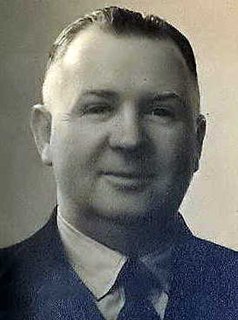Related Research Articles

The Scottish Trades Union Congress (STUC) is the national trade union centre in Scotland. With 40 affiliated unions as of 2020, the STUC represents over 540,000 trade unionists.
Community is a British trade union which formed in 2004. The union represents workers in a diverse range of sectors, including iron and steel, justice and custodial, domestic appliance manufacturing, textiles and footwear, road transport, betting, the third sector as well as the self-employed.
Thomas Williamson, Baron Williamson, was a trade unionist and Labour Party politician in the United Kingdom.
Captain Mark Hewitson was a British trade union official and Labour Party politician. He was chosen at the last minute to stand for Parliament, and eventually served as a Member of Parliament (MP) for nineteen years. He was described as a member of the 'old school' of trade union leaders, and proud of it.
Sir William Albert Jenkins was a Welsh coal exporter and ship owner and Liberal politician.
John Edward Newton was a British trade unionist.
Herbert Lionel Bullock was a British trade unionist.
Bryn Roberts was a Welsh trade union leader.

Bartholomew Walsh was a Welsh trade unionist.
William John Richard Squance was a Welsh trade unionist.
Tom Eccles was a British trade unionist.
Royston Rickhuss is a British trade union leader.
James Gilroy Baty was a British trade unionist.
George Benjamin Thorneycroft was a British trade union leader.
John William Slater was a British trade unionist. He served on the General Council of the Trades Union Congress and has been memorialised by a fund set up in his name.
John K. Dutton was a British trade union leader.
Leonard Forden was a British trade unionist. He served on both the General Council of the Trades Union Congress and the National Executive Committee of the Labour Party.
Harold Hewitt was a British trade unionist and politician.
John Twomey, also known as Jack Twomey, was a Welsh trade union leader.
Leonard Oakes was a British trade unionist, politician, and co-operative activist.